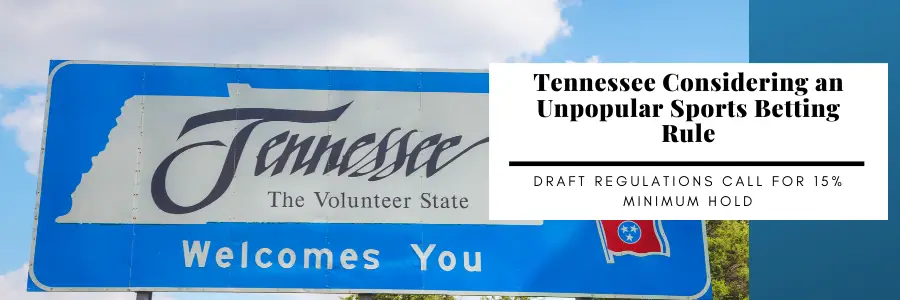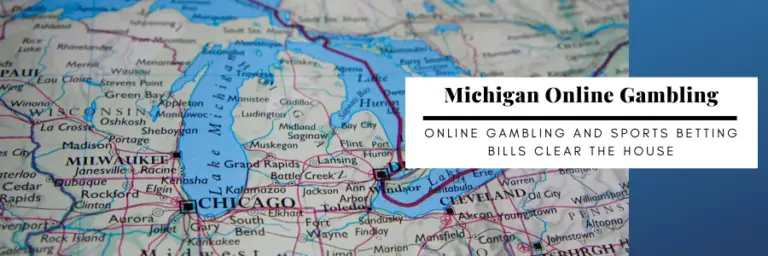Tennessee Is Trying To Borrow An Unpopular Policy From France

Tennessee sports betting regulations are in the public comment phase, and far from set in stone. But multiple policies the state is considering have industry types up in arms, including a mandate that sports betting operators hold at least 85% of all wagers.
That rule would make Tennessee sports betting one of the worst gambling propositions in the country. For comparison, 85% is penny slot territory, and even the much-maligned triple-zero-roulette has a payout percentage of 92.3%.
Whose Bright Idea Was This?
Tennessee didn’t pull the idea out of the sky.
If you’re wondering where Tennessee came up with the idea for capping the annual aggregate payout of sports betting operators at 85%, look no further than France, where the same rule has .
France adopted the 85% rule as an attempt to cut down on compulsive gaming. The theory is, if players are constantly losing handily, they’re less likely to increase bet amounts and frequency.
The Mandate’s Impact In France
The 85% rule is impactful. routinely have worse odds than their global counterparts, evidenced by a quick visit to the France versions of bwin or Unibet along with the companies’ global sites. Visit them both and you’ll see different odds, with French bettors getting the short end of the stick.
Overall hold percentages in France are also significantly higher than in other European countries – which are themselves much higher than the historical hold percentage in Nevada of around 5%.
An older study on the market cites the average payout in France at around 79% in 2010. In Italy, the average payout was 85%, which interestingly falls within the French guidelines. Nor are 15% holds uncommon in many European markets. The UK is considered one of the best markets in that regard and its most competitive brands hold 7-8%.
However, instead of letting the market decide on a 7-8% hold or a 15% hold, Tennessee wants to follow in France’s footsteps and mandate it. That will almost certainly lead to hold percentages well above 15%.
Sports betting has inconsistent returns, and operators aren’t going to risk potential fines by targeting a 15% hold. They’ll give themselves some leeway and are likely to mimic France and land around 20%.
Black Market Fears
Anti-market policies (from in-person registration for mobile wagering to high tax rates and everything in between) routinely come under fire as aiding and abetting the black market. That criticism has been heaped on Tennessee.
The 2010 French study was no different, as it concluded:
Along with its constraints on betting, the French regulation introduced a maximum limit for betting payouts – 85%. This is an unusual limit not encountered in any of the leading gaming legislations, incl. the UK, Italy, Spain (offline sports betting). By introducing this limit, the French regulation adopted a means to prevent the growth of the market base on compulsive gaming behavior, which is one of the goals set forth by Law no. 476/2010. Since gaming can be dangerous, the French regulation has set a cap on winnings. However, it needs to be pointed out that a payout cap only limits the growth of the legal market. Paradoxically, it gives the black market a further advantage on the legal offer.
That said, the black market serving France isn’t demonstrably different than the black market in . However, France has strong enforcement policies in place that keep the larger offshore operators at bay. Tennessee, a single state, won’t have the same capacity to enforce prohibitions on offshore operators, but at the same time, the market is tiny (relatively speaking) which will perhaps limit the appeal of Tennessee to the big offshore sportsbooks.
Policies Created Pre-Roberts
There’s still a chance the 85% rule (along with some other policies) will be altered before the final regulations are written. As noted, the state is currently in the public comment phase of the process, and media and bettors have been voicing their concerns.
Additionally, Tennessee hired industry veteran to oversee its new sports betting program. Roberts was appointed as the Director of Sports Gaming Regulation for Tennessee Education Lottery Corporation in November after the draft regulations were written.
Roberts is well-respected and understands the pros and cons of the policies being discussed, and Tennessee would be wise to listen to what she has to say.







